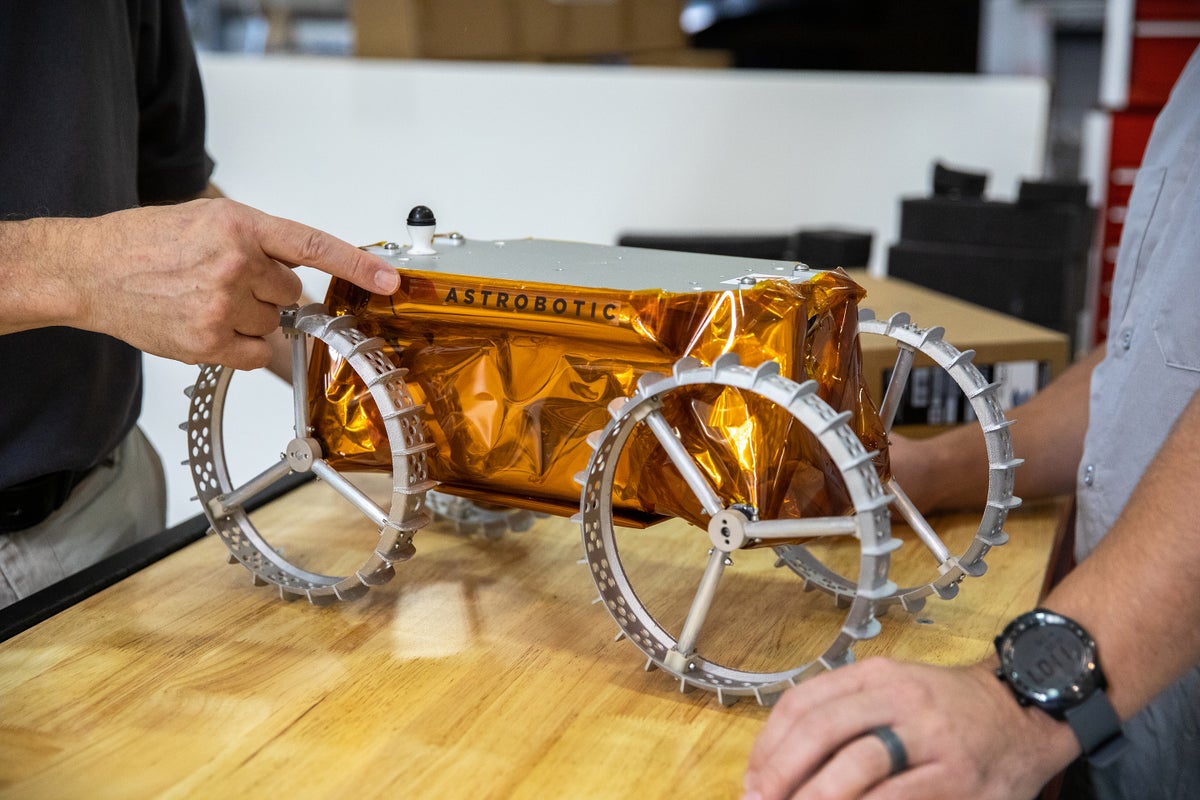Now Reading: Math Enthusiasts Task Lunar Rover with Calculating Pi
-
01
Math Enthusiasts Task Lunar Rover with Calculating Pi
Math Enthusiasts Task Lunar Rover with Calculating Pi

Rapid Summary
- Astrobotic’s CubeRover, a shoebox-sized lunar rover, will be launched later this year.
- Engineers identified spare computing power onboard and partnered with math YouTuber and comedian Matt Parker to develop a creative use for it: calculating the value of pi on the moon using random numbers derived from moon data.
- The project involves elegant mathematical techniques were random paths or points generated by lunar data are used to approximate pi.
- A Kickstarter campaign exceeded its $150,000 target in just four hours to fund integration of Parker’s code into CubeRover without interfering with its primary mission goals.
- Over 100 schools and more than 2,000 students have signed up for participation in this educational initiative associated with the project. Andrea Davis from Astrobotic expressed hope that engaging kids through such initiatives would inspire them toward careers in STEM fields like robotics or space technology.
Indian Opinion Analysis
This innovation showcases an intriguing convergence between playful creativity and serious technological pursuits within India’s broader interest in space exploration initiatives-similar to ISRO’s efforts on scientific outreach and collaboration. While calculating pi on the moon may offer no direct scientific utility, it symbolizes how science can inspire communities without restrictive expectations of practical benefits.
For India, which increasingly emphasizes STEM education among youth alongside growing participation in international space ventures (e.g., Chandrayaan missions), projects like these align well with cultivating curiosity via global collaborations encouraging mathematics as universally accessible rather than elitist discipline tied exclusively productive measures essentially amping future fundamental spirit engagements!

























